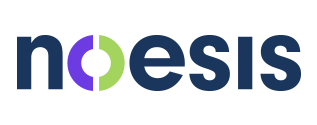We’ve all heard the saying the only constant in life is change, but how good are we at it?
If you’re part of an organization going through an acquisition or merger – or simply experiencing day-to-day change – you’re all too familiar with just how difficult it can be to work through.
Often large-scale change initiatives fail because leaders don’t know what motivates people to adopt change. Add to that the use of outdated change models that only partially provide what peoples’ brains need to effectively think through change, and you’ve got a recipe for disaster.
Our brain resists change at all costs, preferring to conserve energy and predict its environment. Only when there’s a perceived meaningful benefit to achieving a goal is the brain willing to engage actively in new or challenging situations. That’s why involving the people we lead in the creation of change-related goals and strategies helps them better navigate and drive desired transformation efforts.
More often than not, though, we miss the mark. Leaders simple don’t have this knowledge.
In one study of 62 companies that had recently undertaken change projects, more than half of all project issues were people-related. In another survey of 1500 executives, 44 per cent of all change projects reportedly failed key parameters such as deadline, budget or quality goals.
The main reason? Gaps in leadership competency. The ability to effectively lead and facilitate change has become a critical skillset for today’s leader. It requires a practical understanding of how their own (and others’) brains responds to change and the ability to communicate in ways that help others lean into and interact with change and its desired outcome. We call it the E3 Approach: Enroll, Empower and Embed.
Enroll
The ability to inspire others to voluntary engage and participate in a desired outcome by promoting an emotional connection to change goals, co-creating a compelling vision and generating ideas upfront.
Empower
Reframing and normalizing the change experience encourages people to innovate, collaborate and focus on solutions rather than problems. Conversations that foster new thinking and accountability helps others stay goal focused and adopt new perspectives and behaviors, despite pressure and ambiguity.
Embed
Celebrating milestones, socializing success stories, acknowledging effort and rewarding progress helps sustain active engagement while embedding lessons learned to further evolve the organization.
Noesis delivers neuroleadership consulting and training to organizations handling everyday change and major transformation initiatives. We help our Fortune 500 clients scientifically improve leadership.


Recent Comments